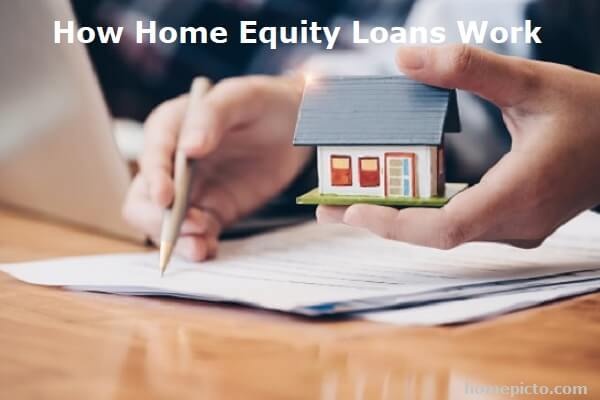A home equity loan is one that you can get using a house's equity as collateral. Home equity loans, or equity loans, second mortgages, and home equity installment loans, are consumer debt. It is accessible against residential and non-residential properties and can be used for any reason. The loan amount is determined based on the property's current market value.
To be eligible for a home equity loan, you must have a solid credit history, a golden loan-to-value ratio, and a combined loan-to-value ratio.
There are two kinds of home equity loans.
Give the borrower a single lump sum payment. The sum may be reimbursed at the agreed-upon interest rate over a predetermined time frame. For the course of the loan, the interest rate does not change in response to changes in the market.
A variable-rate loan that functions similarly to a credit card is the Home Equity Line of Credit (HELOC). This home equity loan, also called a HELOC, enables you to borrow a portion of the bank's pre-approved loan amount.
The loan could be provided as part of a package deal with a credit card that lets you withdraw money from the loan or through checks. The amount borrowed and the interest rate will determine the monthly installments. You can re-borrow the amount repaid, just like with a credit card. Like fixed-rate loans, HELOC has a predetermined tenure. The outstanding balance must be paid off after the loan term.
Like a mortgage, a home equity loan functions similarly. The house acts as collateral in both situations. Nonetheless, the allowable loan amount for a mortgage is up to 90% of the home's market value.
In contrast, a home equity loan allows you to cash in on the equity in your house. Principal and interest payments will be included in the repayment.
These loans are secured by collateral and have easy eligibility requirements. Because this loan is confirmed, you may still be approved despite a low credit score. It helps you make use of the asset's otherwise underutilized financial value.
Because the loan amount is paid to you all at once, it helps to meet any significant expenses you might have. It helps with better planning and budgeting because the interest rate is set for the duration of the loan.
Lenders assess the equity in the home before disbursing home equity loans. Home equity is the difference between a home's market value and outstanding debts. As a result, the formula is:Equity is calculated as the home's current worth minus the total amount still owed on the loan.
For instance, the current equity in your home would be Rs. 10 lakhs if you had purchased a house for Rs. 50 lakh and borrowed Rs. 40 lakhs. Taking it apart.
Equity is calculated as follows: Value of the home ($50,000) - Total amount due ($40,000) (10,000).
Let's imagine that in a few years, the house has improved in value to Rs. 75 lakhs and that you have repaid half of your debt. Although the house's worth has improved, you only have Rs. 20 lakhs in loan installments left to make. As a result, in this scenario, the home's equity will likewise rise. The home's equity will now be:
Equity equals the home's current worth ($75,000), less the total amount owed ($20,000). (55,00,000).
The equity of the residence fluctuates, as illustrated above. The equity in a home may decline as well. The value of a home in a particular neighborhood will decrease if the real estate market there experiences a significant decline. The equity in your home will suffer as a result. The equity in your home will be determined by its market worth if you don't owe any money on any loans.
Conclusion
A home equity loan may be a better financial option than a HELOC for people who are sure of the amount of equity they need to remove and prefer the security of a fixed interest rate.
Whether paying for debt consolidation or home improvements, borrowers should exercise prudence while taking out home equity loans. If too much equity is taken out, getting underwater on a mortgage is simple, which can result in a borrower's credit being damaged and their home going into foreclosure.

You can utilize a home equity loan for any private purpose, including organizing a wedding, paying for a vacation, paying for medical expenditures, etc. It need not be tied to paying bills for your house.
The market value of the home and any financing obligations you may have for the property will determine this.
No. Your home will be utilized as collateral when applying for this loan since the loan amount will be based on the market worth of your home. If you want to use another form of collateral, think about a secured personal loan.
No. This loan is not eligible for any tax advantages. Only a loan's principal and interest components are eligible for tax benefits.
No, a good credit score is not required to obtain a home equity loan, as the value of your house secures the loan. Nevertheless, you risk losing your house if you don't repay your loan since your lender will seize it to compensate for their loss.